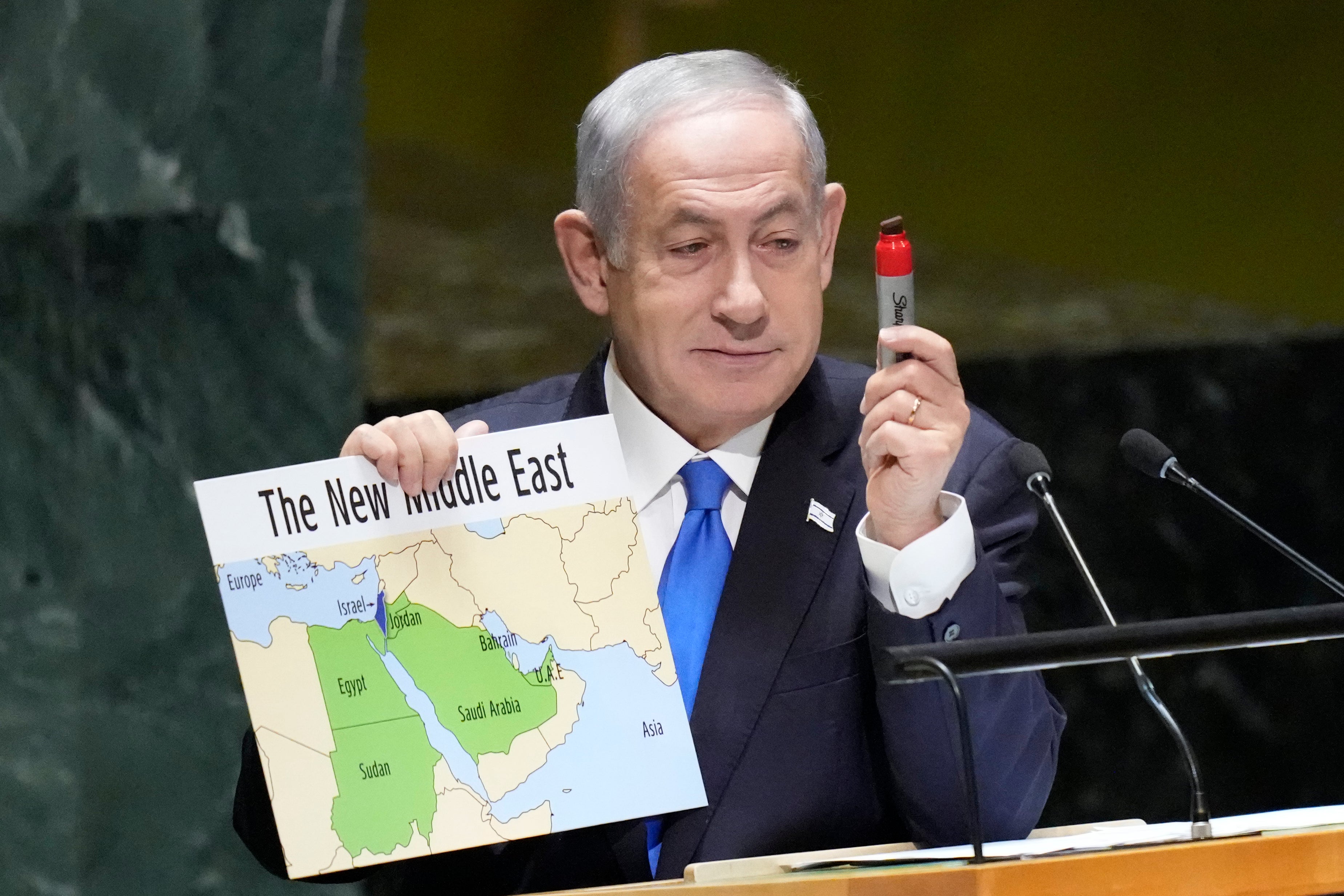Time’s up, Mr Netanyahu – the war in Gaza cannot go on like this
Editorial: Some 28,000 civilians are dead, with children being maimed and orphaned in the most harrowing of circumstances. Any renewed Israeli offensive – including an assault on Rafah – would only weaken the prime minister’s defence against charges of genocide

According to NBC News, the president of the United States is running out of patience with the prime minister of Israel, Benjamin Netanyahu. Citing no fewer than “five people directly familiar with his comments”, Joe Biden is said to have called his counterpart an “a**hole”.
It is entirely believable, given the president’s salty way with words, and understandable, given Mr Netanyahu’s refusal to listen to Israel’s most loyal and powerful allies. Mr Biden has reportedly had enough of his “inability to persuade Israel to change its military tactics in Gaza”. He is not alone.
The question now is: what can the world do to make Mr Netanyahu think again, and to do so before a certainly horrific assault on Rafah? When it comes, it promises to be even more devastating than the levelling of Gaza City. Perhaps it will prove the most deadly of all the many tragedies in this merciless conflict.
Surely the prosecution of the war by Israel cannot go on like this. After so many weeks of large-scale military activity, only three hostages have been freed as a result of Israel Defense Forces operations, relatively few Hamas terrorists captured, and even fewer of their commanders suitably dealt with. Indeed, one was executed at his base in faraway Beirut.
Instead, children have been killed, maimed and orphaned in the most harrowing of circumstances, some 28,000 civilians are dead (and they could not all be Hamas fighters), and Israel’s tactics have shocked the world and attracted the attention of the International Court of Justice as a prima facie case of genocide. It cannot be deemed a success.
It has always been true that none of this would have happened if the atrocities of 7 October 2023 had not been perpetrated. Israel retains an inalienable right to defend itself. But Israel has never had, not even on day one of operations, immunity from international law and humanitarian norms. Much of the international goodwill that Israel attracted in October has been squandered; the nation has piled up against itself millions of fresh personal grievances, in Palestine and far further afield.
The state of Israel is increasingly being ostracised from the rest of the world. The war has spread and escalated, and Israel is far less secure in its borders. America has been drawn closer to conflict with Iran. All of this very much suits Hamas and Israel has, to some degree, walked into a trap. And yet Mr Netanyahu promises more of the same.
The British foreign secretary, in public at least, is more polite but no less exasperated or pointed than Mr Biden, and has set out with clarity the consequences of the proposed mass air and tank assault on Rafah, which is basically a landscape of people subsisting in tents.
Lord Cameron says: “We are very concerned about what is happening in Rafah because, let’s be clear, the people there, many of whom have moved four, five, six times before getting there. It really, we think, is impossible to see how you can fight a war among these people, there is nowhere for them to go. They can’t go south into Egypt, they can’t go north and back to their homes because many have been destroyed.”
The United Nations commissioner for human rights, Volker Türk, calls it “terrifying”. The Egyptians and the Saudis warn of disastrous consequences. One and a half million people in Gaza watch and wait for the bombs and the tanks to arrive.
At any rate, a renewed Israeli offensive seems certain to weaken its defence against charges of genocide, will push the normalisation of relations with its neighbours further away, and will doubtless lead to yet more Houthi operations in the Red Sea and Gulf of Aden against Western navies and civilian shipping.
Israel’s obduracy might attract grudging approval if it were certain to end terrorism and deliver a lasting peace – but it will not. Only two forces can possibly avert another imminent humanitarian and indeed military disaster. The first is for the US to restrict the flow of lethal aid to Israel, or at least make a credible threat to do so. The US might also choose to weaken its almost unconditional support of Israel at the UN. That would be problematic for the White House in an election year but such pressure has been occasionally applied by America against Israel before.
In the early 1990s, the George HW Bush administration used US aid as leverage to stop the illegal colonisation of the West Bank by Israeli settlers – it worked, if temporarily (and the settler issue is adding to tensions now).
The second source of restraining pressure has to come from within Israel. Mr Netanyahu is deeply unpopular but that very factor is apparently making him more desperate to try and “win” the war at any cost. It is, perversely, driving him hard towards extreme methods, and certain defeat for his armies in terms of being able to “destroy” Hamas for good.
As a result, Mr Netanyahu will eventually face even greater ignominy when the time comes for him to face the Israeli electorate, and his nation will have to wait even longer to live in peace with its neighbours. Is he even capable of thinking again?






Join our commenting forum
Join thought-provoking conversations, follow other Independent readers and see their replies
Comments